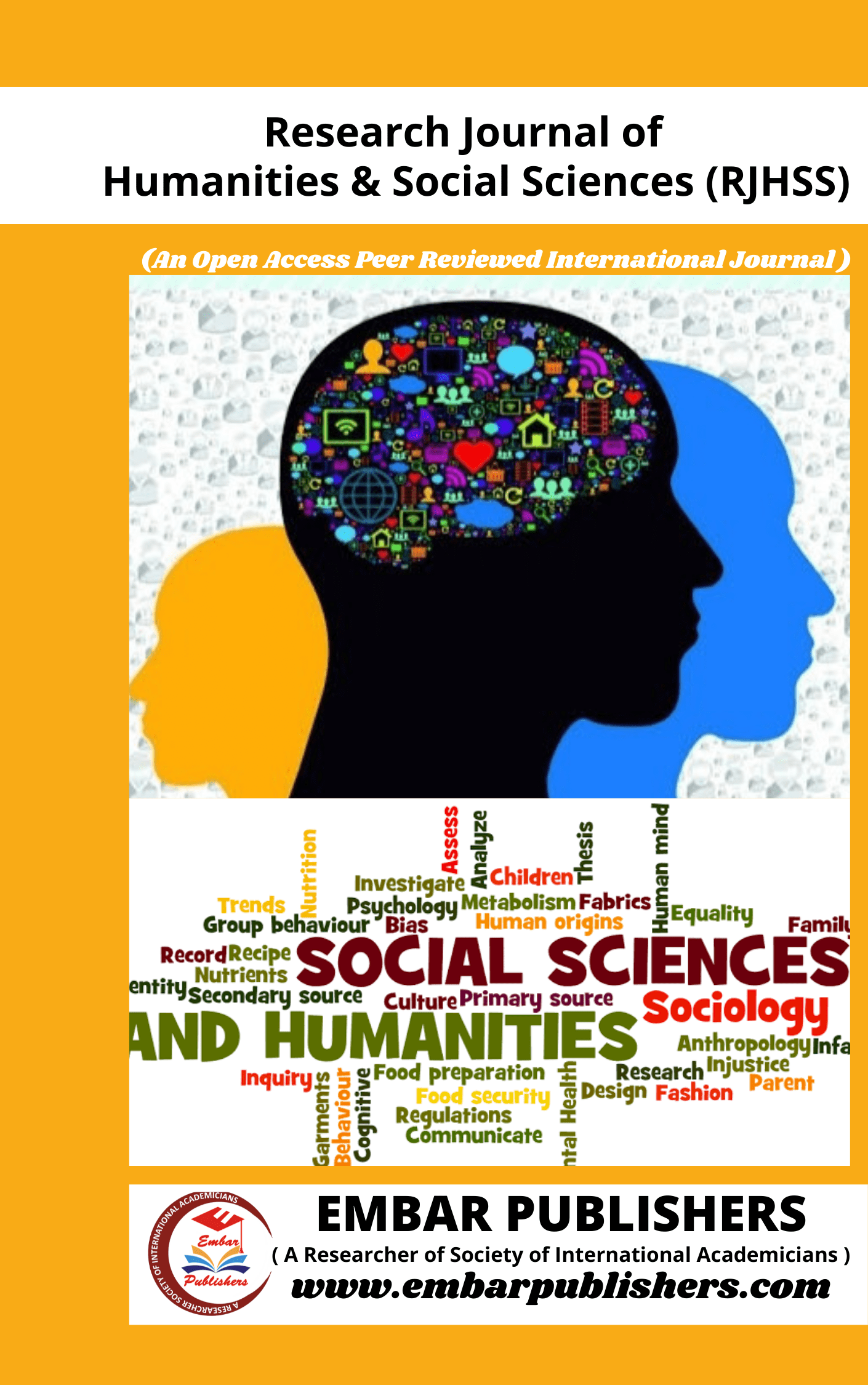
Indigenous Eco-Aesthetics in Global Folklore: Practical Uses and Theoretical Basis for Environmental Justice
Md Habibur Rahman , Md Mobashir Rahman
University of Rajshahi, Rajshahi, Bangladesh
DOI: doi.org/10.58924/rjhss.v4.iss5.p14
Published Date: 10-Nov, 2025
Keywords: Global Folklore, Indigenous Knowledge, Eco-Aesthetics, Environmental Justice, Cultural Sustainability
Abstract:
Research into alternative paradigms for ecological ethics and justice is much needed, particularly in light of culturally ingrained views during a period of growing environmental crises. This paper presents Indigenous Eco-Aesthetics in Global Folklore as both a theoretical framework and a useful instrument for improving ecological justice.Using many indigenous traditions from Bangladesh, India, Brazil, the United States, and Australia to examine how sacred aesthetics within folklore help to create sustainable ecological worldviews and practices, the work generates and uses an original theoretical model, Indigenous Eco-Aesthetic Folklore Theory (IEAFT).This paper contends that by means of songs, rituals, myths, visual arts, and holy narratives, indigenous people encode environmental knowledge, stewardship ethics, and resistance strategies, therefore establishing a dynamic ecological archive rather than only a symbolic or artistic medium.Three basic pillars support anchoring the suggested IEAFT: pragmatic stewardship, symbolic ecology, and sacred aesthetics.These components enable indigenous and folklore depictions to constitute ecological action plans as well as epistemological models.Using a qualitative and interpretive approach, the research reviews a set of worldwide case studies showing the pragmatic application of eco-aesthetic expressions in cultural activism, biodiversity protection, and ceremonial land care. Among these are Dreamtime ecological maps of Australian Aboriginal tribes, the Tree-hugging chants of the Chipko movement in India, the rain-invoking Baul melodies in Bangladesh, and holy river narratives of Amazonian and Native American cultures. These forms defend ecological wisdom, conserve knowledge, and act as tools for legal claims, protest against environmental damage, and sustainable education models, as well as the defense of information.In the end, the research offers indigenous eco-aesthetic folklore as a neglected yet effective tool in the environmental justice debate.Re-centering folklore inside ecological and political theory, the study argues a decolonized approach to environmental theory, one that recognizes and advances the spiritual, creative, and pragmatic contributions of indigenous people to the worldwide battle for environmental justice.
References:

Journal: Research Journal of Humanities and Social Sciences
ISSN(Online): 2945-3968
Publisher: Embar Publishers
Frequency: Bi-Monthly
Chief Editor: Dr N.L.N Jayanthi
Language: English
ISSN(Online): 2945-3968
Publisher: Embar Publishers
Frequency: Bi-Monthly
Chief Editor: Dr N.L.N Jayanthi
Language: English
